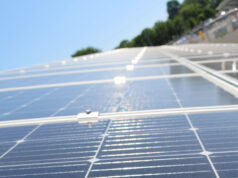
SALES of imported vehicles in the third quarter dropped by nearly a fifth from a year ago, weighed by soaring fuel prices, high inflation and interest rate hikes, according to the Association of Vehicle Importers and Distributors, Inc. (AVID).
In a report released on Tuesday, AVID said imported car sales slid 18% to 22,774 units during the July to September period, versus 27,605 units sold during the same period in 2017.
This brought the nine-month sales tally to 65,917 units, 13% lower than the 75,949 units sold in the comparable period last year.
“Amidst the headwinds, AVID retained its rosy outlook that its wave of new product launches and customer-focused service offerings will augur well for the automotive industry,” AVID President Ma. Fe Perez-Agudo said in a statement.
AVID is the auto industry association whose members import their products and do not assemble in the Philippines.
Light commercial vehicles (LCV) accounted for the bulk of sales during the third quarter, with 15,279 units sold, 11% lower year-on-year.
For the nine-month period, LCV sales fell 10% to 41,808 units against 46,683 units sold a year ago. Ford Philippines sold 17,600 units for the first nine months, making it the best-selling brand for the segment.
Sales of passenger cars continued to slump, with a 30% drop in the third quarter to 7,350 units.
Passenger car sales fell 20% to 23,531 units from January to September. Hyundai Asia Resources, Inc. (HARI), distributor of Hyundai Motor vehicles in the country, led the segment with 15,359 units sold in the nine-month period.
AVID attributed the weak vehicle sales to the continued “high inflation, interest rate hikes and surge in oil prices.”
AVID members include car brands at all price points as well as commercial vehicle distributors, and its results reflect the strength of the market for economy and high-end vehicles as well as trucks, which are considered investment goods for business buyers. — Janina C. Lim



